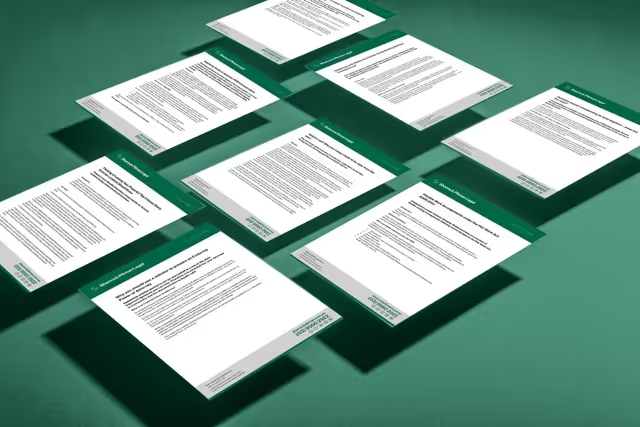Part 9 Debt Agreement
A Part 9 Debt Agreement is a useful tool for debtors and creditors alike, providing debtors with a way in which to settle debts without becoming bankrupt, and creditors with the potential to receive more than they would if the debtor were to be made bankrupt.
What is a Part 9 Debt Agreement?
A Part 9 Agreement, otherwise known as a Debt Agreement, is a binding agreement between a debtor and their creditor(s) regarding payment of their debts. These agreements are legislated under Part IX of the Bankruptcy Act 1966 (Cth).
Such agreement may provide for only a portion of any debts to be paid back and the remainder forgiven, or for the full amount of the debt to be paid back under a payment plan. A Debt Agreement can provide for a payments to be made over a period of up to three years, or up to five years if the debtor owns their own home. The specific terms of the agreement will depend on what each party is willing and able to agree.
Once all payments under the Debt Agreement are made, a debtor is released from the remainder of their debts and creditors are unable to recover any further money from them.
Am I able to enter into a Debt Agreement?
Not everyone is eligible to enter into a Debt Agreement, and not all debts can be covered. Notably, the following persons cannot enter into a Debt Agreement:
- Persons who have been bankrupt, had a Debt Agreement, or a Personal Insolvency Agreement in the last 10 years,
- Persons who estimate that their income for the next 12 months, after tax, will be more than $86,800.35,
- Persons with unsecured debts of more than $115,733.80,
- Persons with unsecured assets of more than $231,467.00.
Though a Debt Agreement can be entered into for most debts, they cannot release a debtor from paying any of the following:
- Court fines,
- Student loans, such as any HECS, HELP, or SFSS debts,
- Victims of Crime,
- Debts incurred after the Australian Financial Security Authority (‘AFSA’) receives the debtor’s proposal,
- Secured debts such as a mortgage(s) or car loan(s), or
- Tax debts. These can be included in a Debt Agreement, but the Australian Tax Office is still able to keep tax refunds to cover any remaining debt.
Certain other debts may not be covered by the agreement. AFSA provides a helpful guide of other forms of debts which may be included.
Debts which are shared with another person may also be included in a Debt Agreement, however this does not release that person from paying their debt.
Where a person is not eligible to enter into a debt agreement, they may instead enter into a Part X Personal Insolvency Agreement. These agreements perform a similar function to debt agreements by providing an option for a debtor and their creditor(s) to create an agreement to arrange for payment of any debts. The main difference is that these agreements involve the appointment of a trustee who takes control of the debtor’s property.
What are the benefits and consequences of entering into a Debt Agreement?
Whether or not a Debt Agreement is appropriate will depend on the circumstances.
For debtors
For debtors, they provide a way for a person to repay their debts without becoming bankrupt. In brief, bankrupts are subject to certain prohibitions during the period of their bankruptcy that are not imposed on debtors who enter into Debt Agreements. For example, bankrupts are prohibited from:
- travelling overseas without approval from the trustee,
- acting in position of management in a company, or
- trading without advising of their bankruptcy.
A notable consequence of entering into a Debt Agreement is that doing so is considered an act of bankruptcy. Accordingly, a debtor’s name will be placed on the National Personal Insolvency Index ('NPII') for a period of five years. The NPII is a public record of insolvency proceedings in Australia and therefore has the potential to affect future business opportunities. A listing on the NPII, however, is unlikely to affect you to the same extent that a bankruptcy would.
In addition, a Debt Agreement will be recorded in the Public Record of a debtor’s credit file for five years from the date the agreement is entered into. This period may be extended if there is a failure either to comply or to make payments in accordance with the agreement. As such, their credit score will be significantly reduced and it will most likely be difficult to obtain loans or other financial assistance while the agreement remains on a person’s record. However, where a person finds themselves unable to pay their debts such that a Debt Agreement is a possibility, their credit score and ability to obtain finance is likely to be adversely affected even without the presence of a Debt Agreement on their record.
For creditors
Where a debtor has failed to repay money and there is a possibility that they may be insolvent, a Debt Agreement is likely to provide an opportunity for the creditor to be repaid than if the debtor were to be made bankrupt. It can also provide security and protection for creditors whereas an informal repayment agreement cannot.
A debtor has three months to make up any arrears should they default on a Debt Agreement. After this period, the Debt Agreement Administrator must send a notice to the creditors advising them of the default and the creditors may then terminate the agreement.
Termination of the agreement reinstates all debts, including any interest and charges as if the Debt Agreement never occurred. Creditors may then take action against the debtor accordingly.
How can Sharrock Pitman Legal assist?
If you require advice on whether a Debt Agreement may be right for you, please feel free to contact our Litigation team on 1300 205 506. We have an Accredited Specialist in Commercial Law and a Commercial Litigation team who can provide you with advice regarding your options, in addition to guiding you through the steps that are appropriate in your circumstances.
The information contained in this article is intended to be of a general nature only and should not be relied upon as legal advice. Any legal matters should be discussed specifically with one of our lawyers.
Liability limited by a scheme approved under Professional Standards Legislation.
Caroline Callegari is an Associate Principal and Accredited Specialist (Commercial Litigation). Caroline leads our Disputes & Litigation team and has an advisory and advocacy practice in the following areas: Commercial Litigation, corporate and personal disputes, debt recovery and, insolvency and bankruptcy matters. Caroline can be contacted on (03) 8561 3324 or by emailing caroline@sharrockpitman.com.au.












